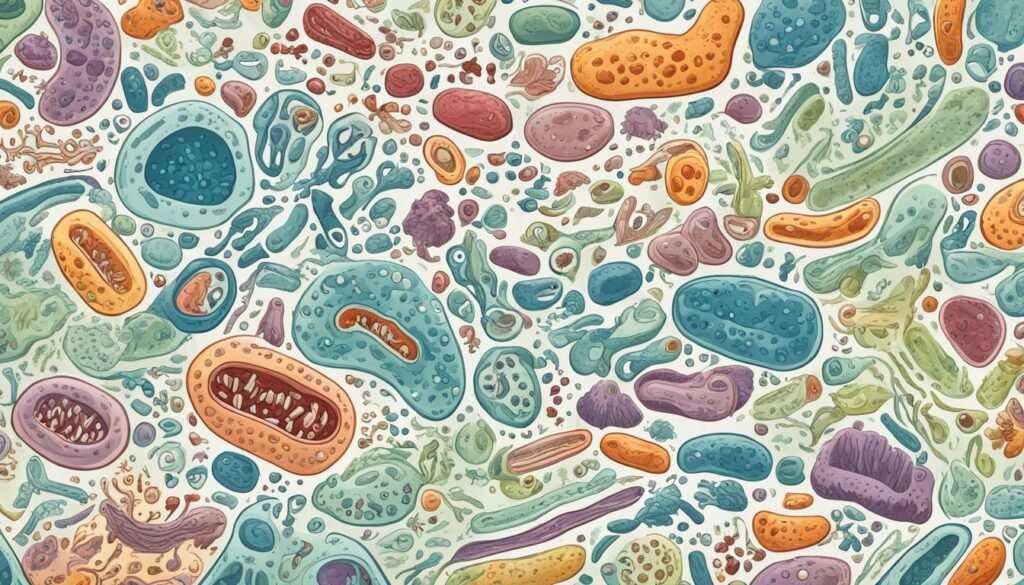Many people think a dog’s mouth is cleaner than a human’s, but is this really true? Experts in veterinary care say this idea is not quite right. Dogs and humans both have similar bacteria, but dogs have more types of dental bacteria than humans do.
Dogs have about 600 different kinds of bacteria in their mouths. Humans have around 615 and counting. So, it’s clear that a dog’s mouth is not cleaner than a human’s.

Comparing the Oral Hygiene of Humans and Dogs
Dogs and humans share some similarities in their mouths, despite their differences. For example, both can have the same bacteria, like Porphyromonas, which can lead to gum disease. Over time, germs build up on teeth, causing bad breath, gum problems, and even bone damage.
The Truth About Dog and Human Mouth Bacteria
Research reveals that dogs and humans both have about 600 types of bacteria in their mouths. Pasteurella canis is common in dogs, while Porphyromonas causes gum disease in both species. Early gum disease can be treated at home, and regular dental check-ups are advised for both dogs and humans.
| Comparison | Dogs | Humans |
|---|---|---|
| Number of Bacteria Species | 600 | 615 and counting |
| Key Bacteria Family | Porphyromonas (causing periodontal disease) | Porphyromonas (causing periodontal disease) |
| Potential Infections | Bacterial infections, viral infections, Rabies | Bacterial infections, Capnocytophaga canimorsus |
| Dental Care Recommendations | Brushing, dental treats, professional cleanings | Brushing, flossing, professional cleanings |
Dogs can spread bacteria and viruses, but the risk to humans is low. Rabies is the most serious disease dogs can pass on through their saliva. Good dental care for dogs is key. Taking your dog for a dental check-up yearly can help prevent dental problems.
is a dog’s mouth cleaner than a human’s mouth?
Periodontal Disease and Oral Hygiene
Comparing the bacteria in a dog’s mouth to a human’s is complex. Dogs have about 600 types of dental bacteria, while humans have around 615. Both have the Porphyromonas bacteria, which can cause gum disease.
Good dental care is key for dogs and humans alike. Periodontal disease, which inflames the gums, is common in both. If not treated, it can cause tooth loss and other health issues.
| Characteristic | Dog Mouth | Human Mouth |
|---|---|---|
| Bacterial Species | Approximately 600 | Approximately 615 |
| Common Bacteria | Pasteurella canis | Porphyromonas gingivalis |
| Periodontal Disease | Can lead to tooth loss and other health issues | Can lead to tooth loss and other health issues |
A dog’s mouth may have more bacteria, but it’s not cleaner than a human’s. Keeping up with dental care is important for dogs and humans. This includes regular dental visits and cleaning at home.

Risks of Infections and Diseases from Dog Saliva
Bacterial Infections
Getting germs from a dog’s saliva to humans is rare but possible. Dogs can spread bacteria and viruses through their spit. This can happen if a dog bites you or if their spit gets into your nose, mouth, or eyes. Bacteria like Capnocytophaga canimorsus and Pasteurella canis can cause serious infections in people.
Dogs can also spread Salmonella or E. coli if they eat contaminated food. Rabies is a deadly infection dogs can pass on through their spit. It’s almost always fatal if not treated.
A 2018 study found that dog spit can help wounds heal faster. It has proteins and enzymes that kill bacteria. But, a 2016 case showed a 70-year-old woman got a severe infection, Capnocytophaga canimorsus, from a dog’s spit. This shows dogs can pass on infections to humans.
- Dogs can carry harmful bacteria like Pasteurella, Streptococcus, and Staphylococcus in their mouths.
- Other bacteria found in dog bite wounds include Neisseria, Corynebacterium, Fusobacterium, and Porphyromonas.
- People with weak immune systems, pregnant women, young kids, or seniors are more likely to get infected with Capnocytophaga bacteria.
- Dogs eating raw food can carry harmful bacteria like Salmonella, Escherichia coli, or Listeria monocytogenes in their mouths.
Knowing the risks of dog spit is important. Clean and disinfect any dog bites or saliva exposure. See a doctor if you have any symptoms that worry you.

Conclusion
The idea that “a dog’s mouth is cleaner than a human’s mouth” is a myth. Dogs and humans have different types of bacteria in their mouths. Dogs have about 600 types, while humans have around 615 and counting. Both have Porphyromonas bacteria, which can lead to gum disease.
It’s crucial to keep both dogs and humans’ mouths clean for good dental health. Regular dental check-ups and home care are key. Even though the chance of getting a disease from dog saliva is low, be careful, especially with young kids, older adults, pregnant women, and those with weak immune systems.
Looking after your pet’s teeth is very important. By keeping an eye on your dog’s dental health and fixing any problems quickly, you help keep them healthy. This also stops health issues later on.
FAQ
Is a dog’s mouth cleaner than a human’s mouth?
No, a dog’s mouth is not cleaner than a human’s. Dogs have about 600 types of dental bacteria. Humans have around 615 and counting. Both can have bacteria that lead to gum disease.
How do the bacterial compositions of dog and human mouths compare?
Dogs have more dental bacteria types than humans, with about 600. Humans have around 615 types. Yet, both can have bacteria from the Porphyromonas family, which causes gum disease.
What are the similarities and differences between dog and human oral health?
Dog and human mouths share some similarities but not all. Both can get gum disease from Porphyromonas bacteria. Good oral hygiene is key for both dogs and humans to keep their teeth healthy.
Can dogs transmit infections or diseases through their saliva?
Yes, dogs can spread bacterial and viral illnesses through their saliva. This can happen if they bite you or if their spit gets into your nose, mouth, or eyes. Bacteria like Capnocytophaga canimorsus and Pasteurella canis can cause serious infections in humans.
Dogs can also spread Salmonella or E. coli if they eat contaminated food. Rabies is a deadly infection dogs can give through their saliva. It’s almost always fatal if not treated.






